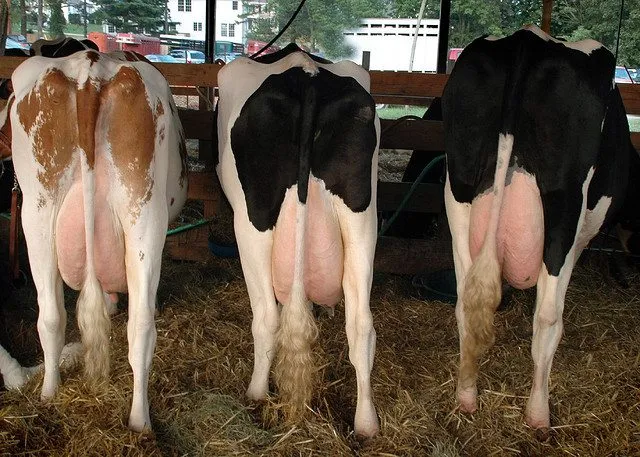At Nkuriga in South Imenti, Meru County, sits one of the most frequented dairy farms in Kenya as farmers from various parts of the country rush to find the secret to high milk production.
The Farm owned by Margaret Riungu hosts farmers from as far as Bomet and Kajiado who come for benchmarking.
The farm has gained popularity as home to some of the top-producing dairy cows, with the top performer producing 60 liters of milk daily.
According to Riungu, the cow, christened ‘Kabete’, has earned her various awards for rearing leading milk producers in the county, after the Meru Dairy Union certified it as the highest milk producer in Meru County.
Her other cows, christened Mwendwa and Sharon, produce 50 litres and 38 litres of milk per day, respectively. The farmer credits the high milk production to quality feeding and good breed selection.
“I cannot take any glory for this. I can say it’s in the genes and quality of feed that I give the animal,” she says.
She notes that Kabete is a Holstein-Friesian, a breed of large dairy cattle originating in northern Holland and Friesland, while Mwendwa and Sharon are a crossbreed of the traditional variety and an Ayrshire.
How to start a dairy farm in Kenya and remain successful in dairy farming
The animals are given different feeds at different stages of growth to boost their performance.
According to Riungu, a lot of protein when the cow is nearly calving is not good because the excess fat tends to be deposited in the udder, causing ketosis, resulting in low milk production.
“That is why at seven months of pregnancy, I reduce the amount of silage and dairy meal. While I normally give each cow between 35 to 40kg of fodder a day, I reduce it to 2kg when the animal is pregnant,” she says.
When the cow is seven months pregnant, Riungu gives her salt supplements, nappier grass, sweet potato vine, lucerne hay, and a little silage like 2kg daily.
She says good rations ensure the cow is neither underweight or overweight, as both conditions compromise the health and milk production capacity.
“A good body score should be between 2.5 to 3.5. Above that, the cow is fat and cannot produce milk well,” she says.
Riungu emphasized the importance of hygiene of those handling the cows, the shelters and the cows themselves. Before and after milking, the teats are disinfected to keep mastitis at bay.
The farmer says she takes great caution from the moment a calf is born, as calf feeding also goes a long way in determining future milk volumes when the cow matures.
“When a calf is born, I give it up to four litres of colostrum which is medicinal as it has antibodies essential for protection against diseases. ”
“The colostrum cleans its intestines. Colostrum is like giving it a good start, as it cleans its system and enables it to feed well,” she adds.
Besides milk sales, Riungu also sells calves and mature cows at her farm, with a pregnant one going for Sh200,000. A calf between one and eight months costs Sh80,000, while a one-year-old retails at Sh150,000.








